-

Hear from Professor Monica Toft
Learn how Professor Monica Toft is shaping the study of global affairs and diplomacy at Fletcher.
Hear from Prof. Toft -

Explore Fletcher academics in action
Fletcher Features offers insights, innovation, stories and expertise by scholars.
Get global insights -
Get application tips right from the source
Learn tips, tricks, and behind-the-scenes insights on applying to Fletcher from our admissions counselors.
Hear from Admissions -

Research that the world is talking about
Stay up to date on the latest research, innovation, and thought leadership from our newsroom.
Stay informed -
Meet Fletcherites and their stories
Get to know our vibrant community through news stories highlighting faculty, students, and alumni.
Meet Fletcherites -

Forge your future after Fletcher
Watch to see how Fletcher prepares global thinkers for success across industries.
See the impact -

Global insights and expertise, on demand.
Need a global affairs expert for a timely and insightful take? Fletcher faculty are available for media inquiries.
Get in Touch
2022 Mixed Media List
Winter 2022 Reading List
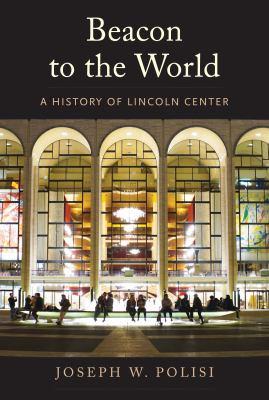
Beacon to the World: A History of Lincoln Center
In 300 pages, bassoonist and president emeritus of The Juilliard School Joseph W. Polisi, F70, H17, has written the definitive biography of Manhattan’s Lincoln Center for the Performing Arts. Funded largely by the Rockefellers and erected between 1955 and 1969 as part of the New York planner and public official Robert Moses’s sweeping program of urban renewal, the center was quickly consecrated as one of the country’s—indeed, the world’s—premier institutions of high culture. The imposing 16-acre campus on West 65th Street has a much more intricate story than one might imagine. Polisi tells it with an insider’s eye for the political and a musician’s ear for the artistic achievements of luminaries who have performed there.
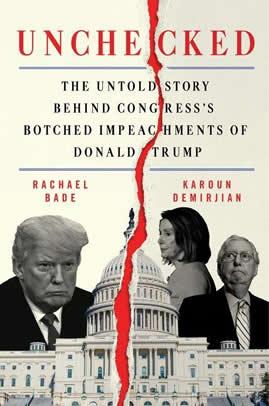
Unchecked: The Untold Story Behind Congress’s Botched Impeachments of Donald Trump
In a disturbing narrative that reads almost like a novel, this book offers an extraordinary peek into what its co-authors see as the Democratic Party’s failure to act decisively regarding former president Donald Trump and the Republican Party’s refusal to speak out against his abuses of power. Karoun Demirjian, F06, Pentagon correspondent and former national security reporter for The Washington Post, and Politico reporter Rachel Bade use their investigative skills to the utmost in this page-turner, which stands out from the hundreds of other titles written about Trump’s presidency and merits a careful read.
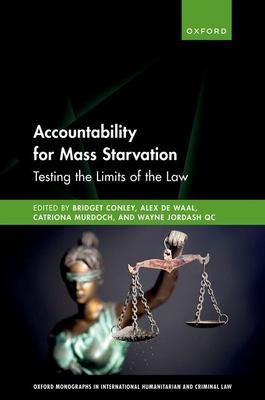
Accountability for Mass Starvation: Testing the Limits of the Law
In this erudite yet accessible collection of essays, editors Bridget Conley, associate research professor at The Fletcher School and research director of the affiliated World Peace Foundation (WPF), and Alex de Waal, WPF’s executive director and a Fletcher research professor, along with two co-editors, examine how international law can prevent mass starvation and impose accountability when it does occur. Chapters cover the historical and conceptual background of starvation in international law; a framework for assessing vulnerability; the complexities of prosecuting the crime of mass starvation; case studies of Yemen, South Sudan, and Syria; and “broader humanitarian, policy, and social issues,” such as negotiation, human rights advocacy, public awareness, and “building and sustaining sufficient political will to end the political and military acts that cause famine.”
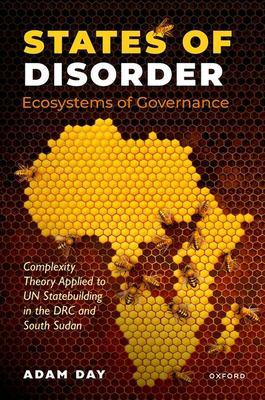
States of Disorder, Ecosystems of Governance: Complexity Theory Applied to UN Statebuilding in the DRC and South Sudan
Complexity theory draws on scientific thinking about uncertainty and complex interactions to examine organizations and strategic management. Here, Adam Day, F06, director of programs at the United Nations University Centre for Policy Research and an expert in conflict resolution, uses it to parse UN interventions in South Sudan and the Democratic Republic of the Congo. He shows how the interventions can contribute to “underlying patterns of exclusion and violence,” increasing those nations’ resistance to attempts at state building. Day approaches the topic with nuance and precision.
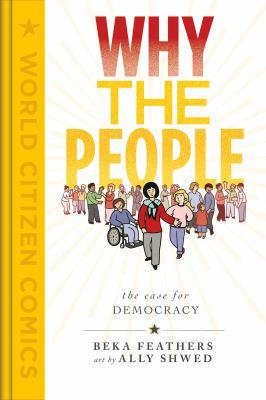
Why the People: The Case for Democracy
This graphic novel is written by Beka Feathers, F10, a legal adviser on political development in conflict-affected states, and illustrated by Ally Shwed. In it, characters Julie Anne Heidler, a white 23-year-old Wisconsinite, and Shu Lin Chen, 43, a first-generation Chinese American who lives in California, meet in an airport and begin a conversation about government: Which kind is best? What are the different kinds, anyway? And who decides which kind a country should have? Monarchy, theocracy, dictatorship, oligarchy, and democracy are described in language simple enough to engage readers as young as middle school. For example: “People are more likely to accept the authority of governments when they see them as legitimate. Governments get legitimacy when they follow their own rules and use their power appropriately.”
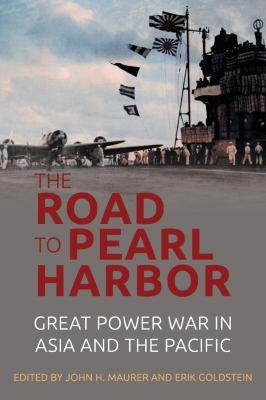
The Road to Pearl Harbor: Great Power War in Asia and the Pacific
The “date which will live in infamy”—the surprise bombing of Pearl Harbor by Japanese forces in 1941—did not come out of nowhere, as is often supposed. But though Japan had been at war with China for four years, “a great power hegemonic war ranging across Asia and the Pacific... was not inevitable,” as editors Erik Goldstein, A78, F79, F80, and John Maurer, F78, F92, write in the introduction. This volume of seven essays by historians and strategy analysts—including Grant Rhode, A70, F79, F80, and Toshi Yoshihara, F04—examines the foreign policy and tactical choices made by leaders from Chiang Kai-shek to Japanese army officers that led to the conflict’s escalation. The final chapter, by Yoshihara, takes a worrying look at similarities between Japan’s views at midcentury with China’s modern posturing, in the hope that today’s heads of state might not be doomed to repeat history.
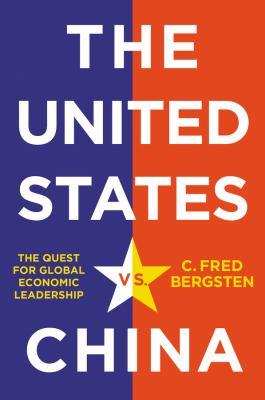
The United States vs. China: The Quest for Global Economic Leadership
For decades, China has been breathing down America’s neck as a challenger to its economic supremacy, and the consequences of an escalation of the current trade and technology war could be catastrophic. In this lucid and persuasive work, C. Fred Bergsten, F62, a nonresident senior fellow and director emeritus of the Peterson Institute for International Economics, lays out a path for “conditional competitive cooperation” between the two countries and other players on the world stage that would allow them to “lead, rather than destroy, the world economy.”
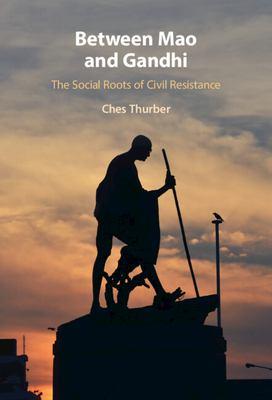
Between Mao and Gandhi: The Social Roots of Civil Resistance
Ches Thurber, F10, F15, an assistant professor of political science at Northern Illinois University, uses cross-national data, case studies in Nepal, Syria, India, and South Africa, and astute analysis to explore why in some countries, at some moments in history, dissidents choose to fight, while in others they challenge the status quo through nonviolent civil resistance. His conclusion—that social forces shape which form the opposition will take depending on “the conflict environment,” opportunities for civil resistance, the group’s relative social dominance, and the existing regime’s likely response—is backed by thorough research and a deep understanding of peace-keeping and global governance.
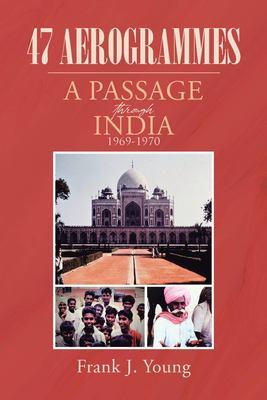
47 Aerogrammes: A Passage Through India 1969–1970
When author Frank J. Young, F73, a retired foreign service officer with the U.S. Agency for International Development, visited his mother at his childhood home in 2012, he found a trove of letters he had written her on a trip he made to India and Nepal in 1969 and 1970 as a college sophomore. This relaxed, almost novelistic illustrated memoir reprints a large portion of those letters along with entries from Young’s contemporaneous journals—which show a gifted writer even then—to paint a picture of an emerging nation only two decades into its independence and still reeling from that chaotic rending. India’s deep cultural and social heritage was utterly alien to a kid from Stockton, California, so while this is a chronicle of a changing country, it’s perhaps more accurately an account of how the trip changed the author then and for the rest of his life.
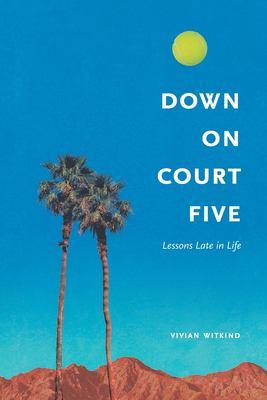
Down on Court Five: Lessons Late in Life
This second book from retired Ohio State University regulatory researcher Vivian Witkind, F68, recounts how she coped and grew as a person while battling breast cancer, caring for her ill and disabled husband, grieving after his death, and working hard to stay in the game—literally, since tennis, to her, “is a rush, irresistible and addictive.” After treatment leaves her feeling exhausted, she considers hanging up her racket but ultimately decides her lifelong sport is part of what keeps her going; for her and her lady friends of a certain age, it’s “our constant, our obsession, our true love match.” This moving portrait of a woman navigating the trials of aging is told with humor and hope.
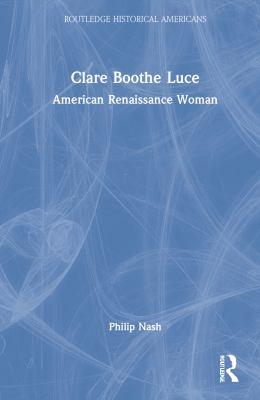
Clare Boothe Luce: American Renaissance Woman
Clare Boothe Luce is perhaps best remembered today as a wit and the author of the 1936 play The Women, which has been repeatedly revived onstage and in film. But as this entertaining biography by Philip Nash, F88, shows, Luce was not only a writer and editor but also a politician, political activist, war journalist, congresswoman, ambassador, pundit, conservative feminist, and wife and mother. Nash, an associate professor of history at Penn State Shenango, weaves primary sources, including Luce’s diary and TV appearances, with new research to unveil an engaging tale of a complex and pathbreaking woman.

Globalization: The Future of Japan and the World
This textbook by Bruce Stronach, F76, dean of Temple University Japan and author or co-author of three other books about that country, is written in English but is meant as an intermediate-level text for Japanese students learning how globalization is affecting Japan and the world. Japan, he writes, has a history of isolation and a homogeneous population and culture, but to continue thriving it must adapt to today’s world of ever-increasing globalization. This book would also make a good introduction to the topic for young native English speakers, as it is clearly written and is careful to explain concepts in easy-to-understand, stepwise fashion.
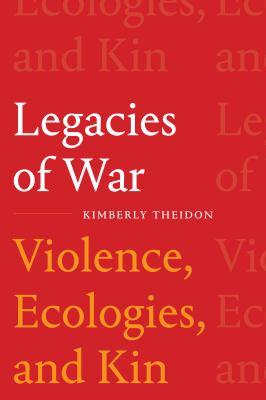
Legacies of War: Violence, Ecologies, and Kin
In this, her third book, Kimberly Theidon, an associate professor at Fletcher and the Henry J. Leir Chair in International Humanitarian Studies, addresses an often-overlooked topic: the children of wartime rape, including the intergenerational impact of their violent conceptions, their life chances, and why they have “by and large remained invisible on the international agenda.” She draws on ethnographic research done in Peru and Colombia to study these topics and more from a gendered perspective, advocating “an explicitly feminist peace-building and postconflict reconstruction agenda” that is just beginning to be acknowledged by the UN Security Council. She drives her points home with deeply personal and affecting stories of these vulnerable children and their wounded mothers—stories of “heroism, endurance, outrage, struggle, and, at times, love.”
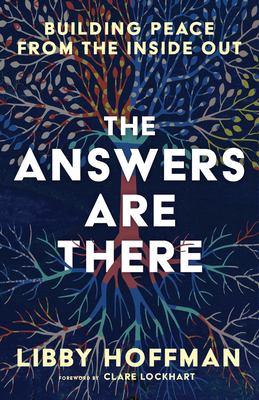
The Answers Are There: Building Peace from the Inside Out
Libby Hoffman, F91, the founder and president of the U.S.-based private foundation Catalyst for Peace, believes peace can’t be imposed from the top down, but must begin at the grassroots. This book shares the story of how she and other human rights advocates effected transformation in Sierra Leone after its 11-year civil war, and how the process could help other countries, including the United States, and even individuals. She co-founded Fambul Tok (Krio for “family talk”), an organization that works toward conflict resolution through Indigenous forms of restorative justice, emphasizing apology and forgiveness around a community bonfire. “From that taproot,” Hoffman writes, “the tree of community healing burst forth and flourished.” Hoffman interweaves her own personal journey with real-life examples that encourage compassion and collaboration, making the book hard to put down.

Resurrection in the Valley of the Shadow of Death: Poems and Paintings from My Heart
Pedro C. Moreno, F87, deputy commissioner at the Mississippi Department of Corrections, states in his author’s note that he is not a professional artist, but the lively, colorful paintings in oil, acrylic, and watercolor that dot this slim volume are nonetheless powerful. The short group of poems they accompany, the author writes, is meant to “encourage you, through the ups and downs of life” and “show you that God loves you unconditionally.” It tackles big topics like love, faith, intimacy, and pain with a decidedly Christian slant, often seeing things from the point of view of biblical characters including Jesus and Mary Magdalene, but one needn’t share Moreno’s religious convictions to find meaning in these pages

The American Diplomat
Leola Calzolai-Stewart, F00, directed this fascinating documentary for PBS’s “American Experience.” It traces the post-World War II integration of the U.S. Foreign Service—then known as “pale, male, and Yale”—through the stories of three early Black diplomats. Edward R. Dudley, Terrence Todman, and Carl Rowan chipped away at the structures of racism in the federal government while representing a country that largely saw them as second-class citizens. Narrated by actor Andre Braugher and available free on pbs.org, the film ably employs archival footage, oral histories, and interviews with scholars and family members to uncover a little-known episode in the struggle for civil rights.
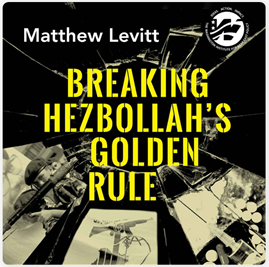
Breaking Hezbollah’s Golden Rule
The golden rule in this book is not, of course, the one you’ve heard since childhood. Instead, according to one operative in the militant Shiite group Hezbollah, it is “The less you know, the better.” In this eight-episode podcast, Matthew Levitt, F95, F05, the Washington Institute’s Fromer-Wexler Fellow and director of the Reinhard Program on Counterterrorism and Intelligence, sets out to break that rule by “shining a bright light on the global terrorist and criminal activities that Lebanese Hezbollah would rather keep hidden from view.” With an international cast of government officials, journalists, FBI agents, and other law enforcement officers, Levitt digs into the growth of the group, its support networks, and its nefarious deeds in the name of the Islamic Revolution. It’s a riveting listen that at times could be mistaken for an audiobook from John le Carré.
Summer 2022 Reading List
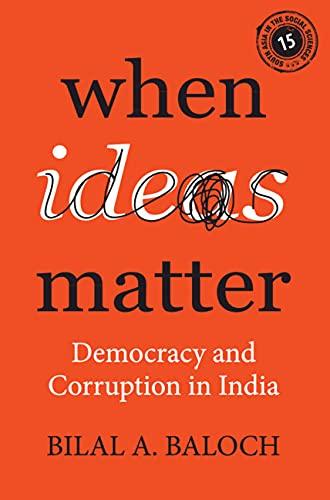
When Ideas Matter: Democracy and Corruption in India
How do the ideas of elites—scholars and policymakers—shape governments and societies? And how well do those ideas hold up when populist anti-corruption movements challenge them? Drawing not only on political and economic theory but also on history, sociology, psychology, and neuroscience, this intensively researched book examines those questions through the history of one of the fastest developing democracies on earth, going back to the leadership of Indira Gandhi. Bilal Baloch, F12, a political scientist and co-founder and COO of Enquire AI, delivers insights that have broad applications in today’s international political climate.
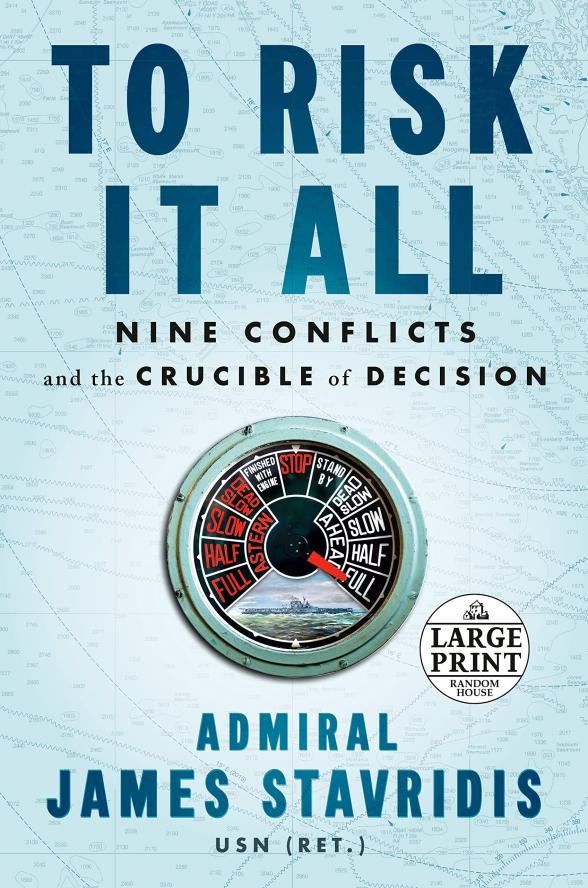
To Risk It All: Nine Conflicts and the Crucible of Decision
While pondering an especially gutsy, self-sacrificing move made by a World War II commander that helped turn the tide in the Allies’ favor, Fletcher dean emeritus and retired U.S. Navy Admiral James Stavridis, F83, F84, was inspired by two questions: What was going through the commander’s mind at the time, and “Would I have had the guts to make that hardest of choices?” This book, the eleventh Stavridis has written or co-written, considers those questions using examples throughout the U.S. Navy’s almost 250-year history, giving readers a chance to reflect on their own decision-making processes, particularly in moments of crisis and stress.
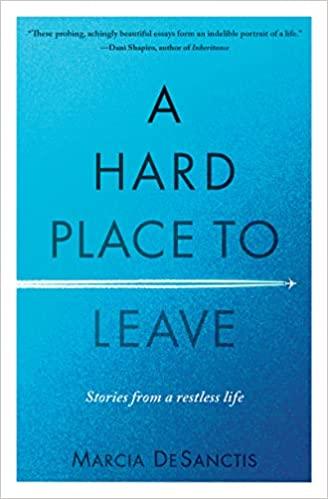
A Hard Place to Leave: Stories from a Restless Life
In this book of 37 essays, Marcia De Sanctis, F08, an award-winning essayist and glossy-magazine journalist, travels the world and provides glimpses of her life in the U.S. She paints telling vignettes of encounters abroad with a female employee of a Soviet hotel whom De Sanctis catches trying on her clothes; a silverback gorilla in Rwanda who sideswipes her to “cheer [her] up,” according to her hiking guide; and Bedouins she encounters on a trek in Petra, Jordan. Back home, we meet her garden-loving contractor; her children, on their first Halloween in Connecticut; and a man identified only as R., with whom she has an emotional affair that she lets go with the help of her forgiving husband. Combined, the essays reveal the traveler’s classic conundrum: “Leave, stay, leave, stay—each time I settled into a comfortable space, at home or away, I looked around for the exit.”
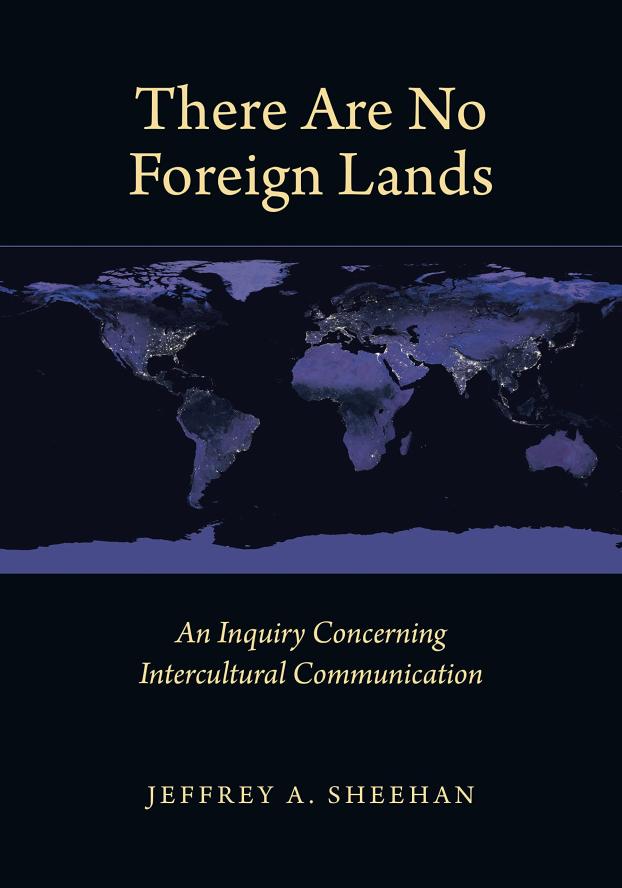
There Are No Foreign Lands: An Inquiry Concerning Intercultural Communication
This book is not easily categorized; it combines history, memoir, psychology, business, politics, cultural anthropology, and more in a peripatetic tour of the lives of 17 people whom author Jeffrey A. Sheehan, F77, befriended while globetrotting as an associate dean for international relations at the Wharton School. He groups the stories of these leaders in their fields as “devoted to the commonweal,” “compassionate capitalists,” “breaking with tradition,” “ebullient survivors,” and more—but what really connects these philosophical mini-biographies is their subjects’ compassion, wisdom, and efforts to emphasize cross-cultural commonalities over superficial differences.

The Blue Revolution: Hunting, Harvesting, and Farming Seafood in the Information Age
In this engagingly written analysis of the complicated and under-discussed topic of putting seafood on the world’s tables, Nicholas Sullivan, F03, focuses on the burgeoning transformation of commercial fishing. A senior research fellow at Fletcher’s Maritime Studies Program and a senior fellow at the school’s Council on Emerging Market Enterprises, Sullivan examines how more sustainable harvesting and farming technologies are developing and blue-green entrepreneurs and investors are taking note. While inevitably some of the news Sullivan must report is gloomy, the book’s overall message is a positive one, showing that with careful management, species can recover and better choices can be made.
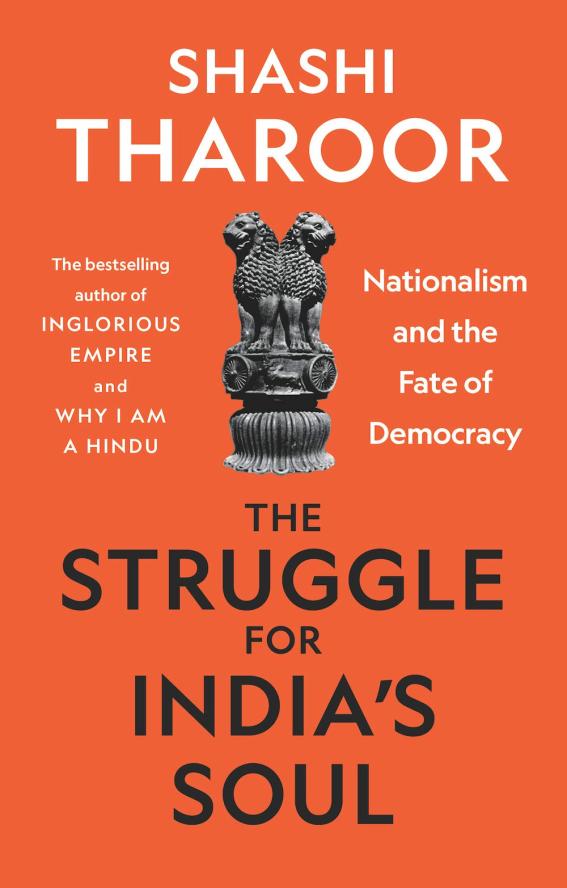
The Struggle for India’s Soul: Nationalism and the Fate of Democracy
Politician, former diplomat, and the author of nearly two dozen books, Shashi Tharoor, F77, F79, here focuses on a topic that could hardly be more timely: nationalism. Considered heroic in India during the country’s struggle against the British, nationalism was tied to the ideals of inclusivity, diversity, religious respect, equality, and concern for the poor, Tharoor writes. But now, he argues, in the era of Prime Minister Narendra Modi, it is used to quash dissent and attempt to convert a pluralist society into a “Hindu rashtra.” Luckily, Tharoor offers a prescription for fighting back.
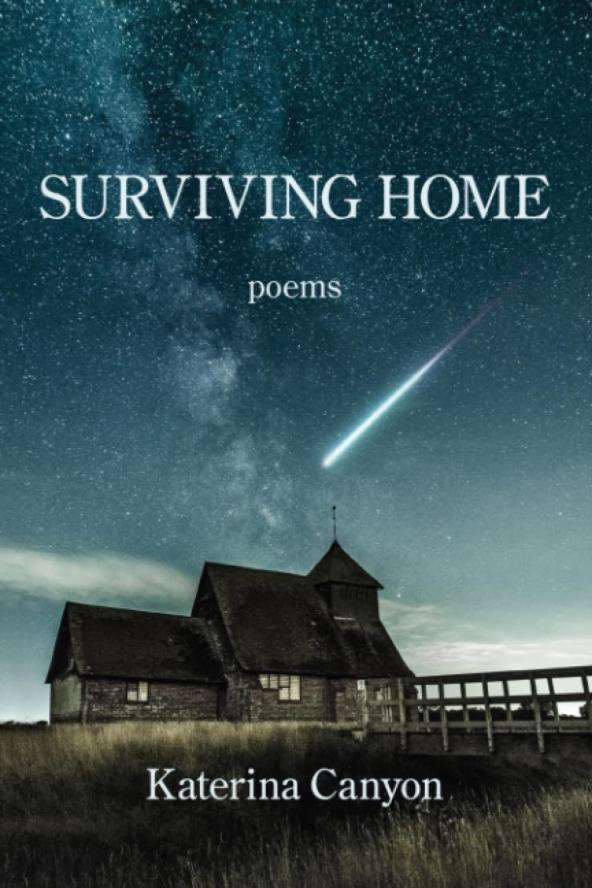
Surviving Home
This collection of 56 poems by Katerina Canyon, F16, a 2019 and 2020 Pushcart Prize nominee, examines some difficult topics, including racism, homelessness, life around drugs, and especially the searingly painful abuse she and her mother and siblings endured at the hands of her father. Despite the horrific scenes she so vividly describes, though, Canyon consistently injects hope into this intimately courageous and visceral volume.
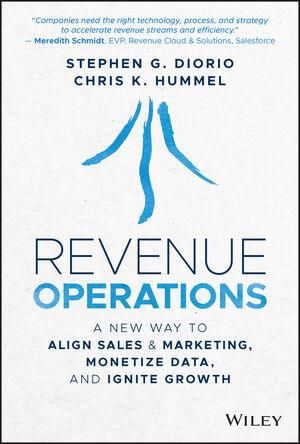
Revenue Operations: A New Way to Align Sales and Marketing, Monetize Data, and Ignite Growth
This practical book looks at the increasingly complex technological world that business inhabits today through a systems-oriented, digital-first approach that draws from case studies and the experiences of leaders in the field. “Organizations too often treat growth like a disconnected, functionally driven art form rather than the interdisciplinary, data-driven science it should be,” write authors Stephen G. Diorio and Chris K. Hummel, F93, co–managing directors at the Revenue Enablement Institute, an advisory firm aimed at accelerating growth through research. Written in clear, concise language and buoyed by more than two dozen illustrations, this roadmap for innovation and collaboration should be required reading for modern managers.
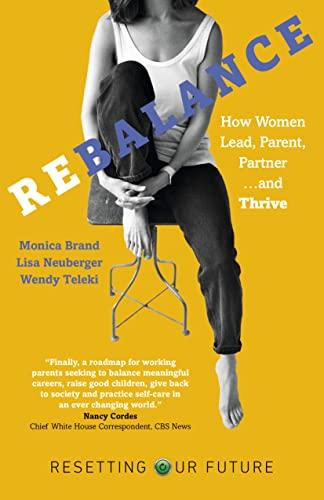
Rebalance: How Women Lead, Parent, Partner ... and Thrive
In this useful self-help guide, Lisa Neuberger, F02, with co-authors Monica Brand and Wendy Teleki, gives women practical advice on how to make peace with the goal of “having it all.” The solution? Have parts of it all at different times. Based on “Aha! moments” the authors had in monthly conversations with a women’s group they started in 2010, the book outlines the concept of “the wheel,” a coaching tool the authors say can help redefine having it all. They offer “intentional and innovative ways” to “focus on the right things at the right times” to achieve balance as mothers, leaders, partners, and citizens.
Articles
- What Are War Crimes - and Will Putin Be Tried for Them? featuring Tom Dannenbaum, assistant professor of international at The Fletcher School, author of 2018 book The Crime of Aggression, Humanity and the Soldier
- Russian Oil and Western Sanctions Against the Ukraine Invasion featuring Amy Myers Jaffe, research professor and managing director of the Climate Policy Lab at The Fletcher School
- Taking a Broader View of Pandemics featuring Alex de Waal, professor of international law at The Fletcher School, executive director of World Peace Foundation

